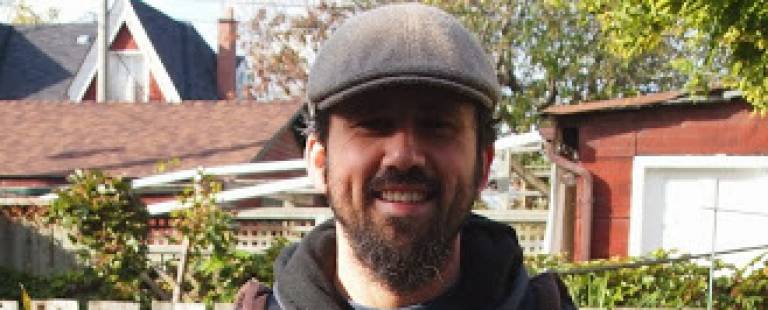Patrick McCormick named WMIS Young Investigator of the Year Award
4 October 2017
Dr Patrick McCormick from the Molecular Imaging Group at CABI has won the Young Investigator of the Year Award from the World Molecular Imaging Society (WMIS).

WMIS held its 10th annual meeting of the World Molecular Imaging Congress (WMIC) September 13 - 16, 2017 in Philadelphia, PA where there were 247 oral presentations and 551 poster presentations, with awards given in each category of science. One of the most prestigious awards at the WMIC, the Young Investigator of the Year Award, recognizes a young, next-generation scientist making giant breakthroughs in the field of molecular imaging.
The 2017 WMIS Young Investigator of the Year Award was presented to Dr McCormick for his work titled, "Evaluation of (4S)-4-(3-[18F]fluoropropyl)-L-glutamate ([18F]FSPG) for Measurement of Intracellular Redox Status using Positron Emission Tomography."
"The findings from this study suggest that our method will be able to detect subtle biochemical changes that precede the desired clinical outcome, namely tumor shrinkage, offering the potential of our technique in both clinical chemotherapy treatment decisions, as well as in the screening of new, more effective chemotherapeutics," said Dr McCormick.
Dr McCormick plans to further validate the method and extend the study to facilitate interpretation of human imaging data. UCL just recently received funding to take this radiotracer into patient studies at the University College Hospital in London.
"Our group is interested in developing the next generation of molecular imaging agents to image cancer response and resistance to therapy," said Tim Witney (Group Leader: Molecular Imaging Group @ CABI). "Drug resistance is currently the biggest hurdle to long-term curative treatments for patients with cancer. We desperately need to understand why some patients become drug-resistant. If we can find these patients, this opens up the possibility of selecting better drugs that may prolong the life of that person. I really hope we can help with this effort. This work is just the start of a large program we are developing to try and answer this previously unanswerable problem."
 Close
Close

